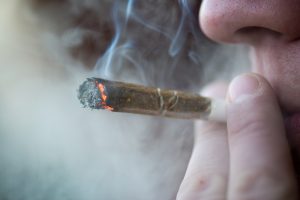Recreational pot likely not on Springfield’s agenda until next year
By Jean Lotus Staff Reporter — March 27, 2017
Eight other states that have legalized cannabis have seen tax revenues spike, including Colorado, where the state collected nearly $200 million in tax revenue.
Legalizing recreational cannabis use — and an expected tax windfall — will likely appear on the General Assembly agenda next year, said Chicago legislators Sen. Heather Steans and Rep. Kelly Cassidy, both of the North Side of Chicago.
The proposed legislation, HB 4276, introduced March 23, would make it legal for residents 21 and older to possess and purchase up to 28 grams, (an ounce) of marijuana for personal use. The sale and production of the product would be taxed at $50 per ounce wholesale, plus state and local sales tax. The new law would also allow up to five marijuana plants to be grown for private use.
The Senate’s dismantled “grand bargain” bill bundle included six new casinos for Illinois as a way to plug the $11 billion budget hole. Many lawmakers and observers in Springfield predicted legalizing and taxing recreational cannabis was not far behind.
Eight other states that have legalized cannabis have seen tax revenues spike, including Colorado, where the state collected nearly $200 million in tax revenue from $1.1 billion in sales of recreational cannabis in 2016. Colorado legalized medical cannabis in 2000 and recreational cannabis followed in 2012.
The first $40 million of a special Colorado excise tax on recreational marijuana is earmarked for school construction projects. That tax generated $50 million last year, according to Forbes magazine.
An analysis published by the Taxpayers Federation of Illinois estimated Illinois could generate between $53.6 million and $115.2 million yearly in tax revenue from the sale of recreational pot.
Steans has advocated de-criminalizing marijuana possession for several years. Gov. Bruce Rauner’s task force on Criminal Justice Reform has proposed ways to reduce the number of people in custody in Illinois prisons by 25 percent. In July, 2016, Rauner approved legislation decriminalizing the possession of small amounts (10 grams).
Steans has asserted that cannabis stops by police were inequitably enforced, even with some cities, like Chicago, reducing the penalty for small amounts of pot. Steans pointed to a 2014 Roosevelt University study showing that African-Americans were arrested instead of written a ticket seven times as often as white people in Illinois.
“Regulating marijuana and removing the criminal element from marijuana production and sales will make our communities safer,” Cassidy said.
Owners of 60 statewide medical cannabis licenses granted since 2014 in the Compassionate Use of Medical Cannabis Pilot Program would need to wait at least one year before selling the drug for recreational use, the bill language said. About 17,000 Illinois patients with 40 serious medical conditions such as AIDS or cancer have cards to buy medical marijuana.
Alaska, Oregon and Washington have legalized and taxed recreational cannabis use. In November, voters in California, Maine, Massachusetts and Nevada voted to approve recreational marijuana by referendum. Illinois has more restrictive rules for statewide ballot initiatives, so approval in the General Assembly is simpler.
— Recreational pot likely not on Springfield’s agenda until next year —







